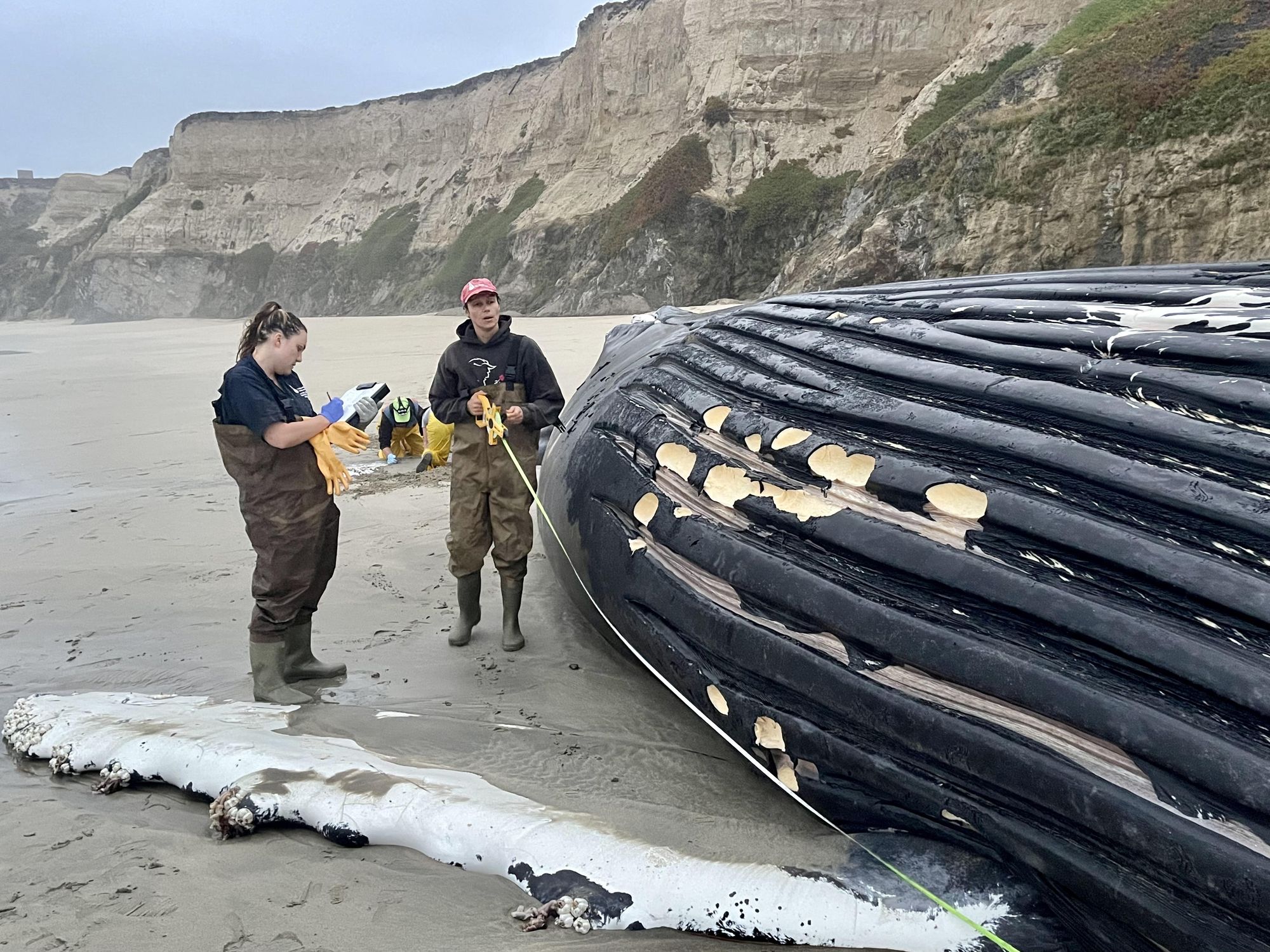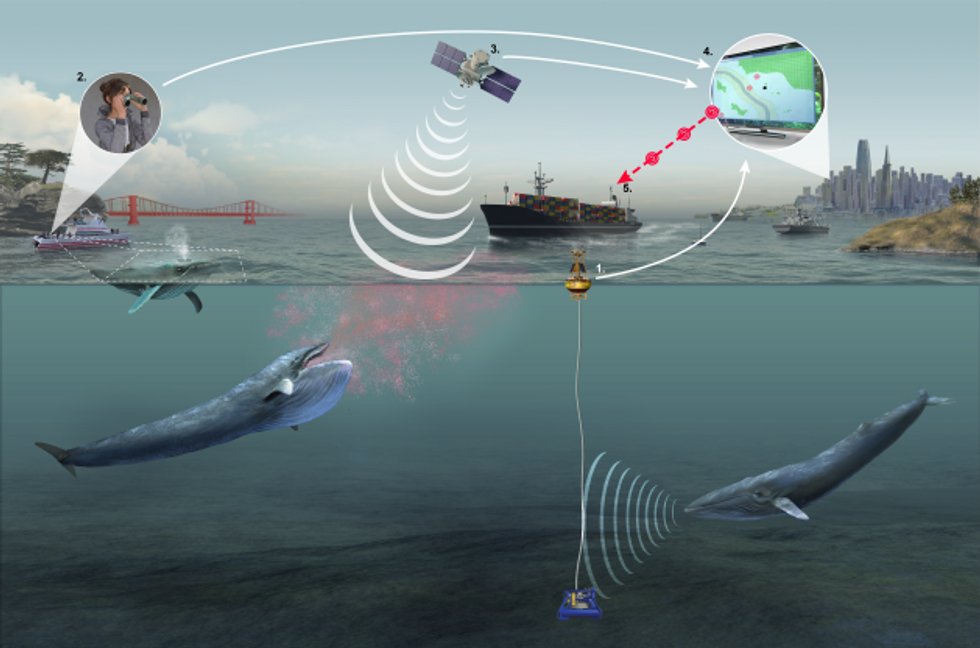The 'Whale Safe' Project Is Working To Eliminate Whale Deaths From Boating Accidents
David Shultz reports on clean technology and electric vehicles, among other industries, for dot.LA. His writing has appeared in The Atlantic, Outside, Nautilus and many other publications.

It’s difficult to calculate exactly how many whales are killed by collisions with ships every year because many strikes go unnoticed and unreported. But some estimates put the number as high as 20,000 per year. This spring, the SF Chronicle reported that as many as 83 endangered whales are killed by ships off the coast of California each year, citing projections from Petaluma organization Point Blue Conservation Science. As the shipping industry continues to grow and climate change forces whales into closer proximity to humans, the problem is only set to get worse.
Fortunately, there’s a simple solution: Simply reducing the speed of the boat gives the whales enough time to respond and escape from threats. Which is why a new initiative, born out of the University of California Santa Barbara, is beginning to supply vessels with strategic information about when and where to brake for whales.

Known as Whale Safe, the project is an offshoot of Benioff Ocean Science Laboratory, which was created through a donation from SalesForce co-founder and co-CEO Marc Benioff and his wife Lynne. The concept behind the technology is relatively simple: An underwater microphone sits around 600 feet below the surface listening for whale vocalizations near the shipping lanes in the Santa Barbara Channel. That data is then combined with blue whale habitat maps and models as well as surface observations from whale watchers and scientists out on the water. All the inputs are then used to create a “whale presence rating” that’s sent out to ships indicating how likely a whale strike is in a given location.
“The best way I can describe the whale presence rating is it's almost like a Smokey the Bear fire warning, but for whales,” says Callie Steffen, the lead scientist at Whale Safe. “It's just a really easily digestible way to understand how much whale activity is happening in the Santa Barbara Channel on any given day.”
For now, the slowdowns are voluntary, but the second part of Whale Safe’s model is that it also collects data about which ships adhere to the warnings and issues public report cards for each company and the individual ships in their fleet.
The analytics are captured from each ship’s automatic identification system (AIS), which is essentially a GPS unit that large ships use to navigate and avoid collisions, says Steffen. The AIS data is obtained through Global Fishing Watch, but WhaleSafe processes the data to pull out the bits relevant to the whale zones they’re studying.
At first glance, it might seem like industry would hate this kind of oversight, but Steffen says there’s a lot of demand for these data from various stakeholders. Retailers and consumers now have a way to prove their goods are being moved in a whale-safe way, and shipping companies like it because it lets them check up on their colleagues and competition.
So far, the project appears to be working. When Whale Safe first began in 2019, only 47% of ships heeded the recommendation, but in 2020 that number jumped to 54%. Today, Steffen says 62% of ships follow the technologies recommendations.
Buoyed by the success, Whale Safe has recently set up a second operation off the coast of San Francisco. The team is also looking for a way to expand its vessel analytics software to the rest of North America. Which means report cards could soon be coming to the East Coast as well—a massive boon for the highly endangered North Atlantic right whale population. All of the data will remain open-source and free to the public.
David Shultz reports on clean technology and electric vehicles, among other industries, for dot.LA. His writing has appeared in The Atlantic, Outside, Nautilus and many other publications.




 Image Source: Skyryse
Image Source: Skyryse
 Image Source: Northwood Space
Image Source: Northwood Space